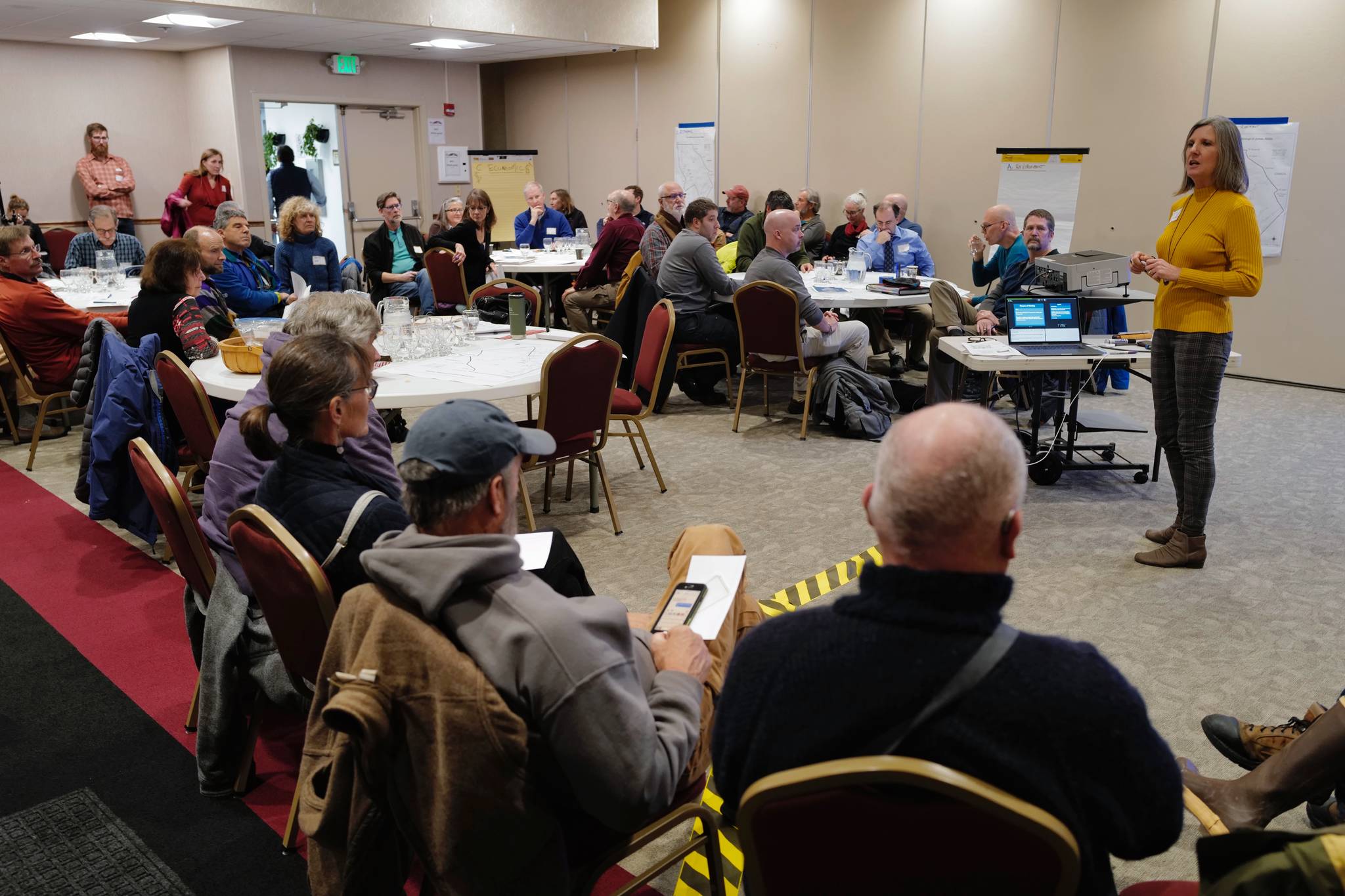Listening to comments at a meeting of neighborhood associations in Juneau Wednesday night, one might come away with the impression the cruise ship industry was destroying the town.
“Trails that are really easy to get to, really you can’t use them,” one woman said. “I like the bike tours, but they use the trails that people walk on.”
“The thing that bothers me about the helicopters is not that they’re making noise,” a man said. “It’s that it’s every five minutes.”
Neighborhood associations from various parts of Juneau gathered to discuss what they felt were issues with the tourism industry in Juneau and how each of their respective areas were being affected. Meeting in a partitioned-off portion of Elizabeth Peratrovich Hall, about 50 people — mostly seniors — rotated between three tables each covering a different topic.
The meeting was organized by Jim Powell, former Assembly member and professor of public administration at the University of Alaska Southeast. Neighborhood associations met in May to discuss the same issues.
Powell said their goal was to collect the concerns of the community and present them to city officials and the Assembly’s newly formed Visitor Industry Task Force, which is looking at ways to address community concerns.
On Wednesday, those in attendance broke into groups, writing their thoughts about the cruise ship industry’s impacts on Juneau. Facilitators for each group took a poll, asking whether people thought each statement was positive, negative or neutral. By the end of the night, most statements had been assigned negative values.
The tone of the night was best summed up by Douglas resident Robert Sewell.
“How much is enough?” he asked. “What’s our community goal?”
The cruise ship industry has grown significantly in the past decade with a projected 1.4 million visitors coming to Juneau in 2020, according to Southeast Conference. As the industry has grown, so have complaints about its impacts.
In 2018, the Alaska Department of Environmental Conservation issued nine air quality violations to ships during that year’s tourist season. Some have suggested placing limits on the number of tourists allowed during the season.
One table was for the environmental impacts, another economics and the last for the cultural and social impacts.
For environmental impacts, most of the comments were largely negative. When it came time for the respective facilitators to share what were the biggest concerns, the two that stuck out were pollution (air, water and noise) and traffic both of extra vehicles on the roads and pedestrians on the sidewalks.
The cultural affects touched on the amount of people coming to town as well.
“The small-town feel, the feel of our home,” one facilitator said. “It’s not what it used to be.”
Even the economics side wasn’t all positive, even as Southeast Conference reports tourists spend $793 million annually and that the industry added 265 jobs across Southeast in 2018. Taxes were mentioned as a positive result, but at the same time, some complained there was too much focus on money and not enough on some of the industry’s other effects, like limiting the opportunities of small businesses.
One theme mentioned by all three groups was the feeling the cruise ship industry as a whole was too powerful. The word “bully” was used at one point.
But while there were many negative aspects discussed, they were framed more as concerns rather than issues to be outright prohibited.
“Not one person that I’ve ever talked to has said they don’t want to see any tourists,” said Kitty Farnham, who helped facilitate the meeting.
Powell said he is interested in hosting more community meetings such as this, but that no future meetings have been scheduled yet.
• Contact reporter Peter Segall at 523-2228 or psegall@juneauempire.com.

